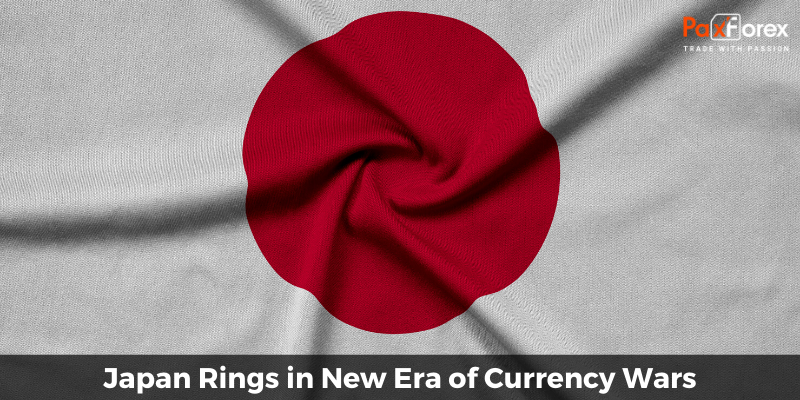
Japan, under the new old leadership of Shinzo Abe, has rung in a new era of currency wars. The return of ‘Abenomics’ has vowed to devalue the Japanese Yen and since November the Yen has dropped double digits against all major currencies. According to Deputy Economy Minister Nishimura the collapse of the Yen is not over and he hinted that Japan would like to see the USDJPY at 100.
A weak Yen is good for Japanese exporters and an economy which has been in a recession for since 1999, but it makes imports more expensive which is why Japan will meet heavy resistance by its trading partners who are most likely to voice their disagreement at the next G-20 conference. Japan is likely to ignore the statements made against them and continue to devalue their currency.
Every developed economy would like to have a weak currency which means at least one country will lose in the global currency war. Forex markets have become increasingly influence by government interventions which distort the natural habitat of the markets and all currencies. Therefore currency exchange rates do not reflect the true strength or weakness of an economy.
Currency wars have been started over a decade ago and the biggest currency manipulator is the U.S. Federal Reserve under Ben Bernanke which has printed U.S. Dollars at a record pace and therefore devalued the USD to the point of worthlessness. The biggest currency manipulator is also the biggest critic of currency manipulation by other countries and therefore nothing more but a hypocrite who lost all credibility.
Currency wars have become an ever increasingly battlefield for governments to fight each other without firing a shot. The impact and end result of any currency war is by far greater than a traditional war and plenty of countries have created financial warfare units and defense departments have increased their recruitment of financial experts, traders and engineers in order to gain the upper hand in a currency war.
We received several warnings from policy makers as well as politicians this week which warned about risks and effects from currency wars, but individual governments will continue to deploy financial weapons which they will point at their own currency in order to devalue it in a desperate attempt to give their export sector a boost with hopes it will revitalize the entire economy.
Germany and South Korea have voiced strong concerns about the Yen weakness, but some market participants point out that both economies speak from a position of strength since both record heavy trade surpluses each month. Other economies will have to criticize Tokyo from a position of weakness. Either way Japan will defend its move and claim it is an attempt to get the country out of deflation as the Bank of Japan adopted a 2% inflation target.
The main question which remains to be answered is what Japan’s trading partners will do about the Japanese declaration of war. They can take a passive approach and allow Japan to have a negative impact on their economies or decide to take an active approach and try to strengthen the Yen if they feel they can out-fire the Bank of Japan which vowed an unlimited supply of Yen. An active approach needs to be taken with a consolidated effort in order to not allow Japan to have a negative influence on the global currency market.
The creation of an international fund to combat currency manipulations would be a welcome development which would create a much better trading environment for all market participants. Such an institution is far from being created, but it would be necessary in order to combat the U.S. and Japan with their constant currency manipulation which has a total net negative impact on the global economy.







